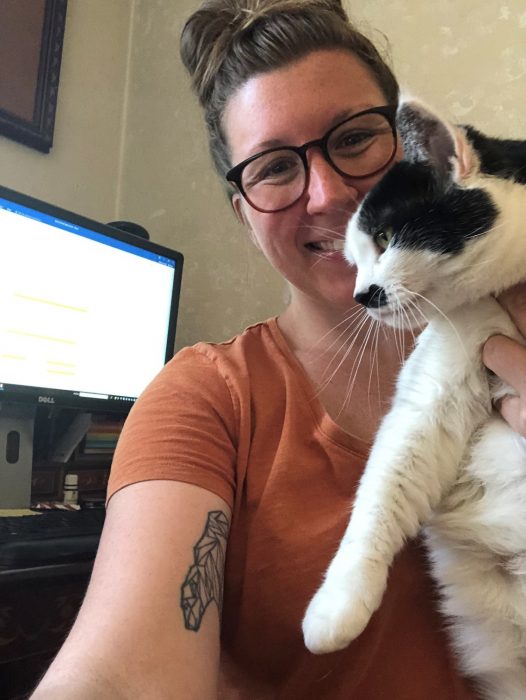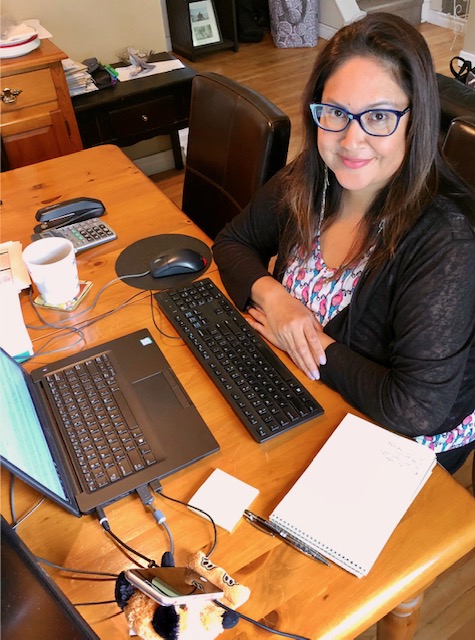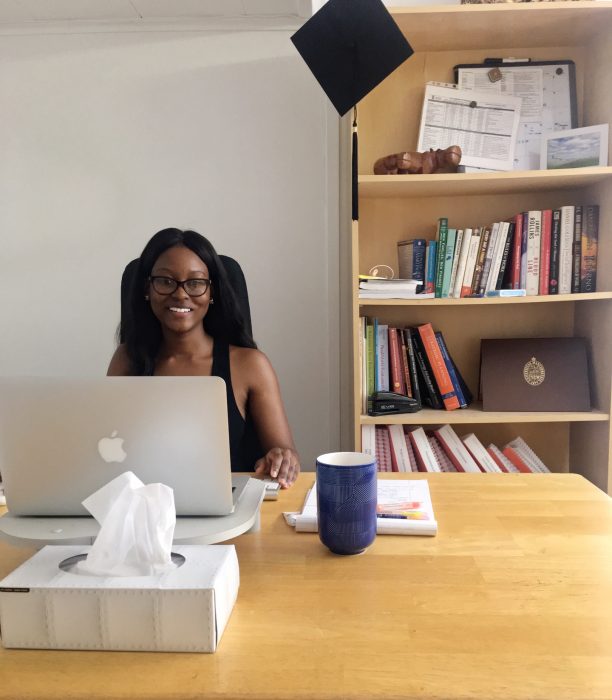
Why you should reach out to an advisor in the virtual world
UM’s academic advisors, like all of us, have had to make big changes to adapt to the virtual world. Advising is more than one meeting, it’s about student progression from the beginning to the end of their academic journey – it’s meant to help deepen students’ knowledge of their degree programs. An academic advisor can help you at any point of your journey to help guide you to academic success.
We chatted with three different academic advisors about how they’re helping students in the new online world.
Carla Loewen is a student advisor at the Indigenous Student Centre. She primarily works with first year Indigenous students through the Qualico Bridge to Success program.
Chiedza Chando is an academic advisor in the First Year Centre (University 1). Her role is to assist students in the transition from high school to university and to support student success throughout the first year of university studies and beyond.
Rebecca Irving is an international student advisor at the International Centre (IC) and works exclusively with international students on matters outside of program and course planning.
How has advising changed from in-person to doing so by distance?

Rebecca Irving
Rebecca: The Advising services at the IC are typically limited to in-person individual and group sessions, so it was a big move for us transition these services to Zoom! We’ve also seen a huge increase in the number of emails that we exchange with students each day. We’re finding that international students have a lot of very valid and important questions during this weird and uncertain time, so it’s been really good to still be able to help and support our students holistically, despite the move to virtual advising, which can seem a little impersonal at first. And, with everyone working and studying from home, it’s just nice to be able to connect with another human each day! Also, our International Transitions Coordinator, Crystal, has been offering weekly Zoom sessions to any international student, regardless of global location, to come together and just casually chat and connect. These happen every Thursday at 2:00 pm (CST) and the information can be found here.
Carla: Having to move so quickly from in-person advising to phone or email advising has shown me how much I value face-to-face interactions! My work has a strong focus on relationship and community building and so not being to have personal interactions has been the biggest change. Also, when talking to students in person it is easier to gauge if a student understands what is being shared. Email advising also takes longer as I always carefully prepare each email to share enough information without being overwhelming.
Chiedza: Connecting with students face-to-face is one of the most rewarding aspects of being an academic advisor. I enjoy meeting with students and the energy they bring to the office, so naturally virtual advising has changed that experience. However, this has been a great opportunity for students to connect with us through emails and phone calls and we also can offer students to connect with us using software such as Zoom, Microsoft Teams etc. Even though we can’t connect in person, we still want to meet students face-to-face! It has also been a great opportunity for us to introduce online resources of which students may not have been aware.
What are some tips you can share for students studying in this new environment?

Carla Loewen
Carla: Time management will be more important than ever. Top organization tips from my peer mentors are: 1) Use a day timer and write down all your assignment deadlines and test dates. 2) Buy an erasable wall calendar and write your important dates on there too. A visual reminder will help keep you on task. 3) Do not procrastinate. Study a bit every day even when you do not feel like it so you can keep on top of your readings. 4) Be kind to yourself. You will have hard days, but you will also get through it.
Rebecca: Uh-oh, I may not be the best Advisor to answer this question, as I don’t advise students on academic matters! There are so many awesome professionals on campus like academic advisors and the staff at the Academic Learning Centre that can give way better study tips than me. However, I’m also studying at the moment (almost done my M.Ed.!) and one thing I’ve found especially helpful since I’m both working full-time and studying part-time at home is to intentionally take a little break every 30 minutes while researching and writing papers to stretch and cuddle with my cat J I also try to get outside and either walk or run each day, and I find that the fresh air helps with my energy and concentration levels.
Chiedza: My tips are: Have a dedicated study space and minimize distractions. Create an effective study timetable and stick to it, right from the beginning of term. We will be offering virtual workshops on creating a timetable which also considers other commitments students might have outside of school. If you live with other people, maybe you have roommates, talk to them about your school schedule and when you will need some quiet time to focus on studying. Don’t treat remote learning any differently than in person learning…take notes on course content, do your assigned readings and stay on top of assignments. Reliable internet connection is also critical to academic success when you are taking your courses online. We recommend hardwire internet connections as it is more reliable, especially during exam time.
When and how can students get in touch with you?

Chiedza Chando
Chiedza: At the First Year Centre we are here to provide support to all learning first-year students regardless of their faculty. If you have questions about your course planning, please contact an academic advisor. Additionally, you can connect with us if you have questions about developing good study habits, time management, figuring out which academic path is right for you, or anything else that’s on your mind. If we don’t know the answer, we’ll definitely be able to point you in the right direction. You can also get information about upcoming events and workshops through our Instagram @umfirstyearcentre.
Carla: Due to the high demand for course planning help at this time of year, we are asking students to contact our main line to request an advising appointment. Indigenous students can phone 204-474-8850 or email isc@umanitoba.ca. We do our best to get back to students within 1-2 business days. Indigenous Student Centre Advisors are available during regular office hours, Monday to Friday from 8:30 AM to 4:30 PM. The Indigenous Student Centre wants to be a part of your academic journey and will do what we can to support your goals! In addition to advising, we have programs for new students, leadership development, Metis inclusion, graduate student success, and back-on-track programming. To see all programs visit our website.
Rebecca: If you have questions, it never hurts to ask, so don’t hesitate to send us an email, and our awesome receptionist can connect international students directly with one of the IC Advisors. We’ve been keeping up-to-date on information that’s released by Immigration, Refugees and Citizenship Canada (IRCC), as well as other student support offices on campus, to ensure that when international students send us an e-mail or set-up a Zoom appointment, we have the most up-to-date and comprehensive information to share.
If you want to reach out to an academic advisor, you can find the right one here.







My daughter starts at UoM in Sept 2020. Who does she contact about getting an advisor?
Hi Dr. Albensi. All the info for advisors can be found here: http://umanitoba.ca/student-supports/academic-supports/academic-advising